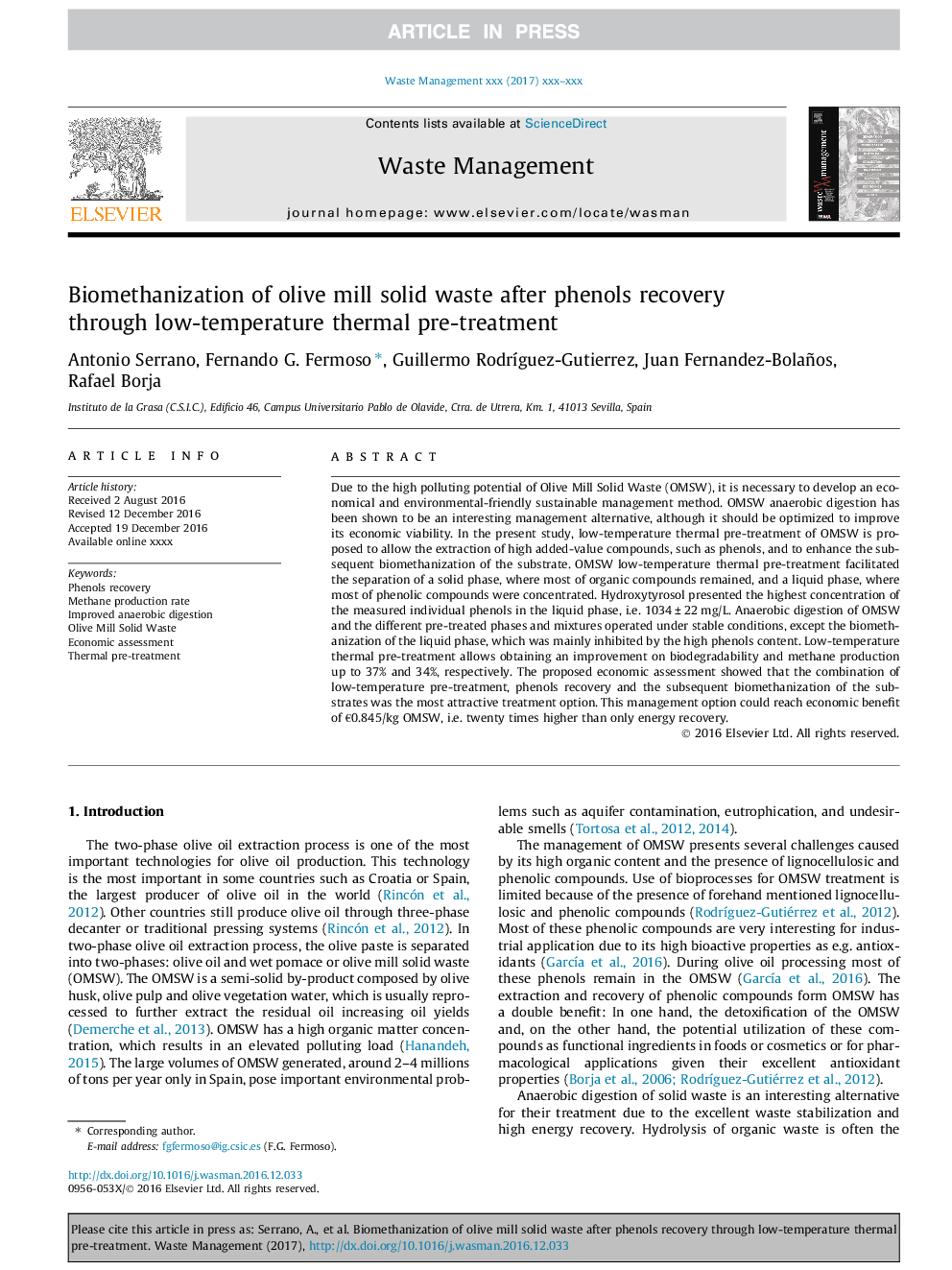| Article ID | Journal | Published Year | Pages | File Type |
|---|---|---|---|---|
| 5756957 | Waste Management | 2017 | 7 Pages |
Abstract
Due to the high polluting potential of Olive Mill Solid Waste (OMSW), it is necessary to develop an economical and environmental-friendly sustainable management method. OMSW anaerobic digestion has been shown to be an interesting management alternative, although it should be optimized to improve its economic viability. In the present study, low-temperature thermal pre-treatment of OMSW is proposed to allow the extraction of high added-value compounds, such as phenols, and to enhance the subsequent biomethanization of the substrate. OMSW low-temperature thermal pre-treatment facilitated the separation of a solid phase, where most of organic compounds remained, and a liquid phase, where most of phenolic compounds were concentrated. Hydroxytyrosol presented the highest concentration of the measured individual phenols in the liquid phase, i.e. 1034 ± 22 mg/L. Anaerobic digestion of OMSW and the different pre-treated phases and mixtures operated under stable conditions, except the biomethanization of the liquid phase, which was mainly inhibited by the high phenols content. Low-temperature thermal pre-treatment allows obtaining an improvement on biodegradability and methane production up to 37% and 34%, respectively. The proposed economic assessment showed that the combination of low-temperature pre-treatment, phenols recovery and the subsequent biomethanization of the substrates was the most attractive treatment option. This management option could reach economic benefit of â¬0.845/kg OMSW, i.e. twenty times higher than only energy recovery.
Related Topics
Physical Sciences and Engineering
Earth and Planetary Sciences
Geotechnical Engineering and Engineering Geology
Authors
Antonio Serrano, Fernando G. Fermoso, Guillermo RodrÃguez-Gutierrez, Juan Fernandez-Bolaños, Rafael Borja,
